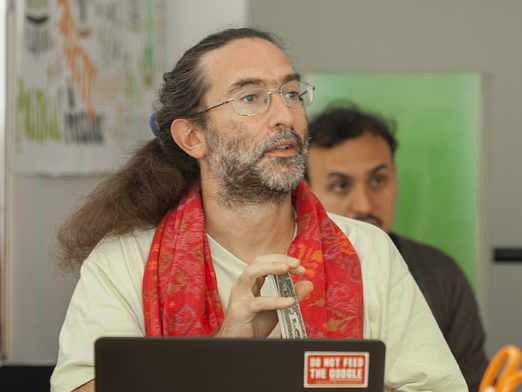Mutual Credit systems require that half of their users be indebted, or in 'commitment' to the other half, yet the law does not recognise these debts unless they are measured in national currency. The money is only as good as the willingness / ability of the indebted users to repay. That makes it rather difficult to bootstrap such projects and to assure users that their credit will be redeemed. So when a mutual credit grows beyond the point where all the members trust each other, we should have some way to guarantee that the credit is good. Just like when you offer collateral to a bank in exchange for a loan.
It is possible for new members of a mutual credit system NOT to be given credit until or unless the system has confidence in them. So what would this mean, practically?
- The simplest way is to offer credit according to national money paid up front. However this defeats the point of many schemes, since national money backing is what they are trying to get away from. And in many schemes there isn't an agreed exchange rate between national money and hours, or LETS. This option would mean that the CC freezing assets at the same rate it is creating them.
- We could make up a lot of complicated formulae to assess how credit worthy a person is - this is what banks do since bank managers don't actually know their customers. But many of us would like something more accommodating to individual circumstances.
- I think we could borrow the idea from the Grameen bank, and issue credit to people who are guaranteed by other people. The system is gameable, since whole groups could default, and preventing that adds to complexity, but nonetheless this should help to bring confidence to the currency. Last year I blogged about this calling it a Mutual Guarantor system.
- An identity check would also have a psychological impact, as there could be a central database of defaulters. However many practitioners of CCs are wary enough of Big Brother and centralisation so this probably wouldn't work well, at least in the currenct climate.
- Like banks, credit could be issued based on past activity. This reduces the likelihood of simply running up a debt and leaving, since it trusts that people will want to stay involved in the community. This is a good way, it is not coercive, but will not prevent people disappearing.
In practice when people leave local systems the commitment and the credit they leave behind usually cancel out. We need to consider this issue only insofar as the credit worth committing fraud over. And even then, unless notes are issued, all mutual exchanges are logged, so how possible is fraud really, especially in any quantity?
If we did the arithmetic we might find it was cheaper in small systems not to build a security infrastructure, but to keep a pot to balance defaulters' accounts and rely on shame and honour to do the rest. Large systems or those that want to offer large credit limits could get a long way with mutual guarantors.
I think that if a community is to extend credit to a person there is always an element of personal judgement and trust. We should not try to minimise that.
[This post arose out of a conversation by Olivier Hetzl]

Comments